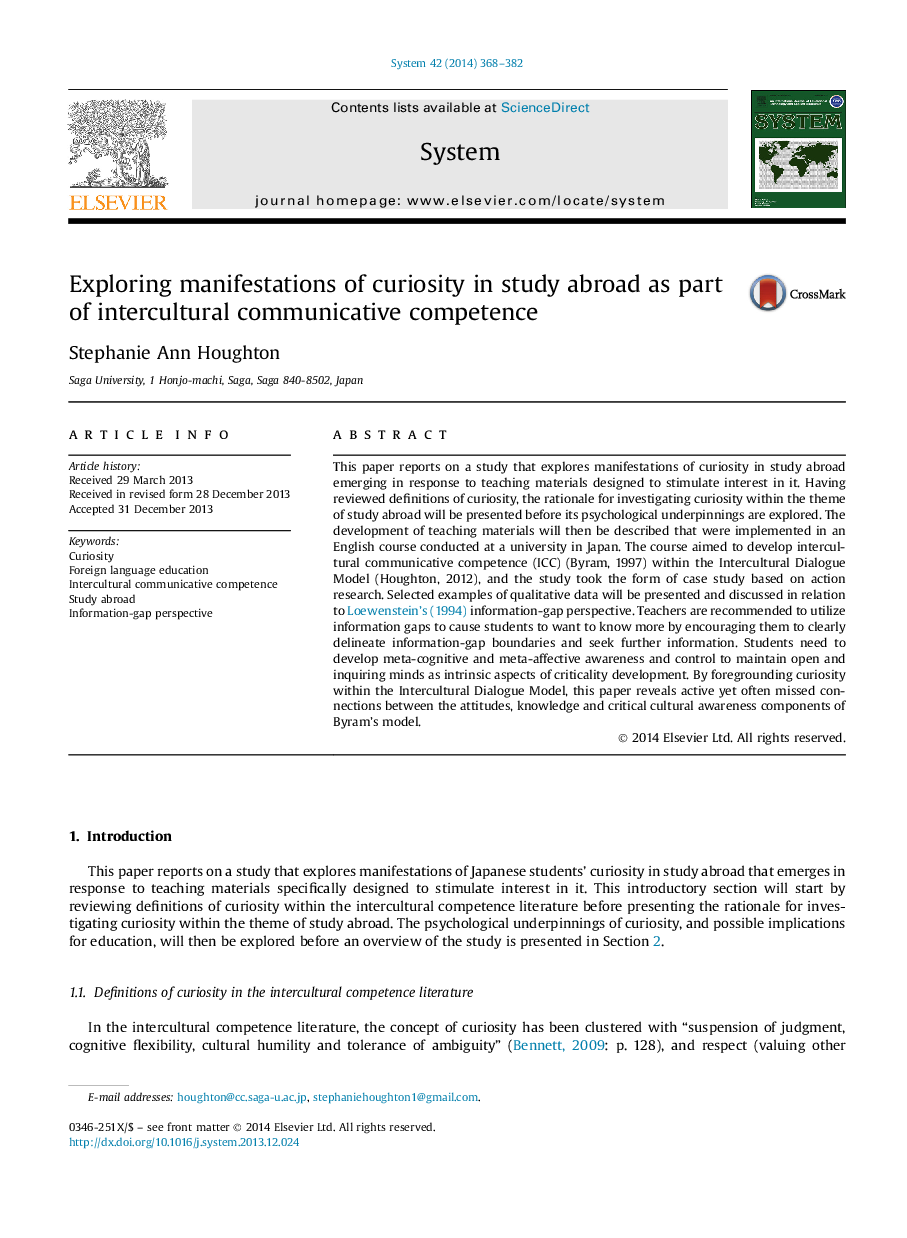| Article ID | Journal | Published Year | Pages | File Type |
|---|---|---|---|---|
| 373433 | System | 2014 | 15 Pages |
This paper reports on a study that explores manifestations of curiosity in study abroad emerging in response to teaching materials designed to stimulate interest in it. Having reviewed definitions of curiosity, the rationale for investigating curiosity within the theme of study abroad will be presented before its psychological underpinnings are explored. The development of teaching materials will then be described that were implemented in an English course conducted at a university in Japan. The course aimed to develop intercultural communicative competence (ICC) (Byram, 1997) within the Intercultural Dialogue Model (Houghton, 2012), and the study took the form of case study based on action research. Selected examples of qualitative data will be presented and discussed in relation to Loewenstein's (1994) information-gap perspective. Teachers are recommended to utilize information gaps to cause students to want to know more by encouraging them to clearly delineate information-gap boundaries and seek further information. Students need to develop meta-cognitive and meta-affective awareness and control to maintain open and inquiring minds as intrinsic aspects of criticality development. By foregrounding curiosity within the Intercultural Dialogue Model, this paper reveals active yet often missed connections between the attitudes, knowledge and critical cultural awareness components of Byram's model.
